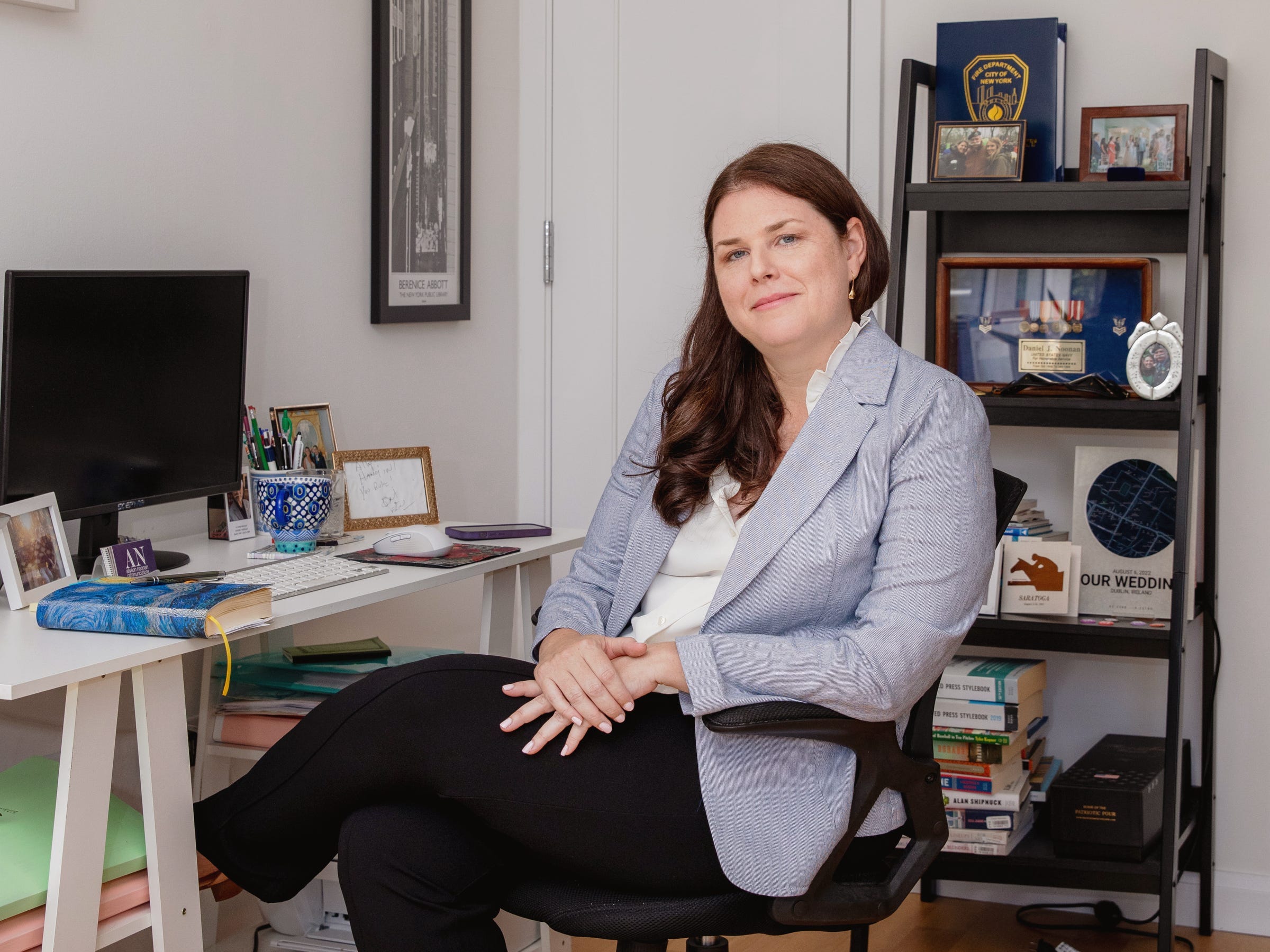
Natalie Keyssar for BI
Allyson Noonan, 39, is a PR consultant and adjunct professor based in New York. In July, Business Insider wrote about how Allyson Noonan and seven other Americans who graduated around the Great Recession navigated early career challenges — and what Gen Z college grads can learn from them. The following has been edited for length and clarity.
It was 2008. The job market had taken a turn for the worse, and I was living off retail shifts and babysitting gigs.
But after more than 100 job applications, I finally caught a break — from someone who’d already told me no.
Now, I’m a PR consultant and an adjunct professor at the college I graduated from. Anxious students constantly ask me for my advice on finding a job in this tough market. Here’s what I tell them.
No one was hiring at the start of the recession
I had graduated from Marymount Manhattan College in December 2007 — the first official month of the Great Recession — with a degree in communication arts. While I had excellent internships, few companies were hiring when the recession started, so I worked part-time at Anthropologie and babysat.
I already lived in New York City because of college, and I spent seven months aggressively looking for a job. I hoped to land a public relations role.
I mostly used the popular job sites at the time — Media Bistro, Craigslist, and Entertainmentcareers.net. I got a handful of interviews from those applications, but struggled to land a job.
A rejected application eventually led to my first job
One day, someone who interviewed me for a job I didn’t get contacted me, saying she had a friend in the industry looking for an entry-level position that she thought I’d be a fit for. This position turned out to be my first full-time job at a PR agency, which I started in June 2008.
This experience taught me that it’s wise to take every interview you can — even if you’re not sure it’s a good fit.
While I was happy to be working, my first position was definitely not my dream job. All my college internships had been in the entertainment and the arts, including one at the Museum of Modern Art (MoMA).
This agency specialized in wholesale technology, and their big client was a company that made deep-sea underwater cables — something I honestly didn’t really care much about. I also had to accept an annual salary of $28,000, much lower than the salaries of many of my peers who graduated just a couple of years ahead of me. I believe my lower pay was due to the recession.
However, the job helped me learn the foundational PR skills that have served me well in my career, including how to communicate with clients and run meetings. I also received good mentorship that turned out to be very valuable down the road.
We want to hear from job seekers and people who recently landed a job. If you’re open to sharing your story, please fill out one or more of the linked Google Forms.
I eventually built a successful PR career — but not the one I’d dreamed of
Despite the rough start, I’ve had a successful career in public relations that’s spanned more than a decade. However, I do think the Great Recession ruined my chance at my dream of working in PR in the entertainment industry.
That said, I think my experience allowed me to learn about other interests I didn’t realize I had. I now do a lot of healthcare public relations work, which I don’t think college-aged me realized I was interested in.
The experience of looking for my first full-time job during a recession also built resilience — and pushed me to explore other options besides work.
In the fall of 2009, I started a graduate program at University College Dublin. I decided to enroll because, even though I was employed, I thought it would be difficult to find a higher-paying job in the market at the time, and it was less expensive to attend graduate school in Ireland than in the US.
My advice for recent grads
While my first job paid little, I eventually caught up to the pre-recession market salaries when I returned to the workforce, though it took me a few years to do so.
I always tell my students to take a deep breath and that things will work out, even though it may take longer than usual to start their careers; the market will eventually swing back. I also suggest taking a job that might not be in their dream industry if they think they can learn valuable skills.
Additionally, I tell them that this could be a great time to have a life adventure, particularly if they’re interested in going to graduate school. I share my experience of studying in Ireland and how I am still close with many of the friends I made during that time.
For recent graduates who want to enter the workforce right away, keeping in touch with college professors — particularly adjunct professors and those currently working in the industry — could help them find work. Ask your past professors if they’d be open to introducing you to their industry friends; I’ve had students ask this of me in the past, and it’s helped some of them land roles.
My last piece of advice is to take every interview you can, even if the company isn’t looking for someone right away or if you aren’t sure you’re a fit. You never know what it might lead to.
The post I found a job after graduating during the Great Recession. Here’s my advice for fresh grads struggling to get hired. appeared first on Business Insider.




